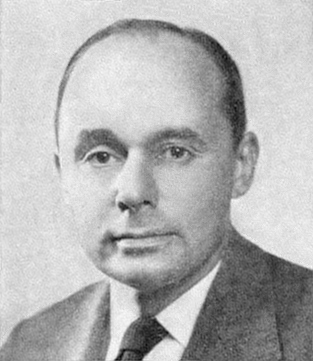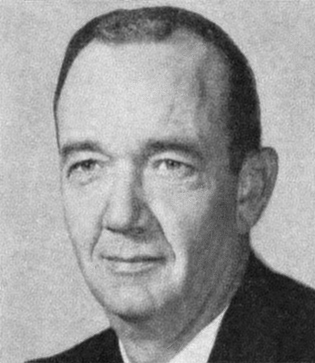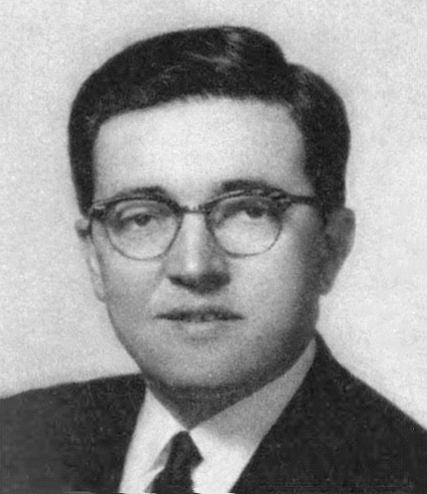Michigan Five Fluke Freshmen on:
[Wikipedia]
[Google]
[Amazon]
The Michigan Five Fluke Freshmen is the name given to five members of the U.S. House of Representatives who were elected in the Democratic landslide of 1964 and were subsequently defeated just two years later by a




 With President
With President
Republican
Republican can refer to:
Political ideology
* An advocate of a republic, a type of government that is not a monarchy or dictatorship, and is usually associated with the rule of law.
** Republicanism, the ideology in support of republics or agains ...
resurgence. They included Paul Todd, Raymond Clevenger, Billie Farnum, John Mackie, and Wes Vivian of the U.S. House of Representatives from Michigan
Michigan () is a U.S. state, state in the Great Lakes region, Great Lakes region of the Upper Midwest, upper Midwestern United States. With a population of nearly 10.12 million and an area of nearly , Michigan is the List of U.S. states and ...
. All of the five were one-term congressmen. It was the last time that a state would have five freshmen members of Congress defeated for reelection.
1964: LBJ landslide




 With President
With President Lyndon B. Johnson
Lyndon Baines Johnson (; August 27, 1908January 22, 1973), often referred to by his initials LBJ, was an American politician who served as the 36th president of the United States from 1963 to 1969. He had previously served as the 37th vice ...
taking over 67% of the vote in Michigan, the Democrats were able to win five districts formerly represented by Republicans, and change the Michigan Congressional delegation from 12 to 7 Republican to 12 to 7 Democratic. Three of the defeated Republicans had significant seniority. The Democratic gains took place in District 2 (based in the Ann Arbor area), District 3 (set around Kalamazoo
Kalamazoo ( ) is a city in the southwest region of the U.S. state of Michigan. It is the county seat of Kalamazoo County. At the 2010 census, Kalamazoo had a population of 74,262. Kalamazoo is the major city of the Kalamazoo-Portage Metropoli ...
and Battle Creek
Battle Creek is a city in the U.S. state of Michigan, in northwest Calhoun County, at the confluence of the Kalamazoo and Battle Creek rivers. It is the principal city of the Battle Creek, Michigan Metropolitan Statistical Area (MSA), which en ...
), District 7 (Flint
Flint, occasionally flintstone, is a sedimentary cryptocrystalline form of the mineral quartz, categorized as the variety of chert that occurs in chalk or marly limestone. Flint was widely used historically to make stone tools and sta ...
and its surrounding region), District 11 (northern lower Michigan and the Upper Peninsula
The Upper Peninsula of Michigan – also known as Upper Michigan or colloquially the U.P. – is the northern and more elevated of the two major landmasses that make up the U.S. state of Michigan; it is separated from the Lower Peninsula by ...
), and District 19 (suburban Detroit
Detroit ( , ; , ) is the largest city in the U.S. state of Michigan. It is also the largest U.S. city on the United States–Canada border, and the seat of government of Wayne County. The City of Detroit had a population of 639,111 at t ...
). Nationally Democrats gained 36 seats from the Republicans in the House.
1966: Republican Resurgence
Richard Nixon
Richard Milhous Nixon (January 9, 1913April 22, 1994) was the 37th president of the United States, serving from 1969 to 1974. A member of the Republican Party, he previously served as a representative and senator from California and was ...
took an active interest in the 1966 midterm elections in Michigan, especially these five races. He personally persuaded Donald Riegle
Donald Wayne Riegle Jr. (born February 4, 1938) is an American politician, author, and businessman from Michigan. He served for five terms as a Representative and for three terms as a Senator in the U.S. Congress.
Early life and family
Donald W ...
to leave academia and run against Mackie, and appeared at a fundraiser for Riegle's campaign early in the primary season. Nixon campaigned for the five Republican challengers during the whole campaign, and played them up to reporters. Political analyst Rhodes Cook wrote that "no politician had used the midterm election year more effectively than former Vice President Richard Nixon, who with his young aide-de camp, Pat Buchanan, took to the 'rubber chicken circuit' on behalf of Republican candidates across the country." None of the Democrats had run as strongly as Johnson in 1964, indicating their potential weakness.
The unpopularity of President Johnson's Great Society
The Great Society was a set of domestic programs in the United States launched by Democratic President Lyndon B. Johnson in 1964–65. The term was first coined during a 1964 commencement address by President Lyndon B. Johnson at the Universit ...
, rising crime, radical campus protests, and racial riots coupled with the coattail effect of popular Republican Governor George W. Romney
George Wilcken Romney (July 8, 1907 – July 26, 1995) was an American businessman and politician. A member of the Republican Party, he served as chairman and president of American Motors Corporation from 1954 to 1962, the 43rd gover ...
at the top of the state ticket all led to a downturn for the Democratic Party. Growing dissatisfaction with the war in Vietnam was also a factor.
The Republicans succeeded in recapturing the five districts they lost in 1964 and returned the delegation to a 12 to 7 Republican majority. Nationally the Republicans gained 47 seats from the Democrats in the House.
In 1973, Riegle switched from the Republican Party to the Democratic Party, and went on to serve three terms in the United States Senate
The United States Senate is the upper chamber of the United States Congress, with the House of Representatives being the lower chamber. Together they compose the national bicameral legislature of the United States.
The composition and pow ...
as a Democrat.
References
*''The Almanac of American Politics 1972'' {{DEFAULTSORT:Five Fluke Freshmen Democratic Party members of the United States House of Representatives from Michigan 1964 in Michigan 1964 in American politics 1966 in Michigan 1966 in American politics